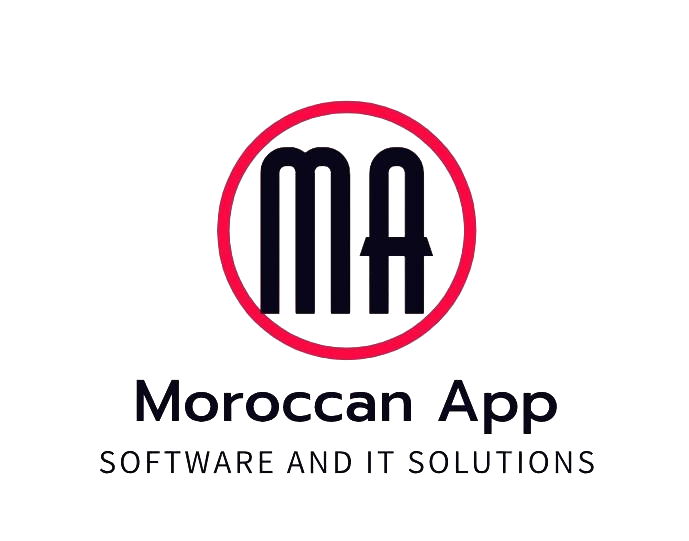Introduction to the Importance of Software for Business
Software plays a crucial role in the success of modern businesses, including in Morocco. Their benefits are evident in various aspects such as productivity, data management, communication, and operational efficiency.
Here are some key points on the importance of software:
Optimizing Productivity
- Software helps automate repetitive and time-consuming tasks, freeing up time for higher value-added activities.
- Project management tools, such as Trello or Asana, make it easier to track tasks, distribute work, and meet deadlines.
Improved Data Management
- customer relationship management software (CRM) like Salesforce helps centralize all customer information for better organization.
- Data management systems prevent information loss and facilitate its accessibility and analysis.
Effective Communication
- Communication platforms such as Slack or Microsoft Teams enable real-time collaboration, reducing response times and improving coordination between teams.
- Videoconferencing software such as Zoom or Google Meet facilitate remote meetings, essential in a hybrid or remote work context.
Operational Efficiency
- ERP (Enterprise Resource Planning) software such as SAP or Oracle helps integrate different business processes (accounting, inventory management, etc.) for better coordination and increased efficiency.
- Operational Efficiency human resources through dedicated software (like BambooHR) optimizes employee tracking, payroll and performance management.
Data Security
- Cybersecurity solutions protect sensitive information from external and internal attacks, ensuring data confidentiality and integrity.
- Antivirus software and firewalls are essential to prevent cyber threats.
The importance of software in businesses is undeniable. They not only contribute to the optimization of internal processes but also to the creation of a more agile and resilient work environment. Using the right software tools is therefore essential to remain competitive in a constantly changing market.
Identify the specific needs of your business
When it comes to choosing the right software for a business in Morocco, it is crucial to understand the specific needs of the business. Here are some essential steps to achieve this:
- Assess current business processes:
- Analyze existing work methods.
- Identify weaknesses and inefficiencies in current processes.
- Collect employee feedback onthe tools they currently use.
- Determine the company’s objectives:
- What are the short- and long-term goals?
- Plan for possible future developments or changes.
- Identify the features that are essential to support these objectives.
- Segmentation of features by department:
- Detail the specific needs of each department (HR, finance, marketing, etc.).
- Understand the different workflows and integrate them into the choice of software.
- List the software already used by each department and its compatibility with the new ones.
- Consider company size and growth:
- Evaluate current employee count and projected growth.
- Choose scalable solutions that can accommodate future expansion.
- Consider modular solutions that can adapt to current and future specific needs. future.
- Budget and available resources:
- Determine the budget available to invest in new software.
- Consider not only the purchase cost, but also the installation, training and maintenance costs.
- Evaluate the internal resources available to manage the change.
- Technical Compatibility:
- Check the compatibility of the new software with the existing infrastructure.
- Ensure seamless integration with other existing systems.
- Consider the hardware and software requirements for the new tool.
Practical example
For example, a retail business may require specific features for inventory management, a robust point-of-sale (POS) system, and analytical tools to forecast demand. By examining these specific needs, it can ensure that the chosen software will effectively contribute to its daily operations and long-term goals.
By summarizing these elements, a company in Morocco can clearly identify its needs and choose a suitable software that will support its growth and operational efficiency.
The Types of Enterprise Software Available
When a company is looking to adopt new software, there are several types of solutions available on the market. Here is an overview of the main categories:
1. Customer Relationship Management (CRM) Software
CRMs help manage interactions with potential and existing customers. They help track sales, marketing, and after-sales services.
2. Human Resources Management Software (HRM)
These software programs facilitate the management of recruitment processes, payroll, performance evaluations and employee training.
3. Financial management software
They include tools for accounting, budgeting, cash flow management, and financial reporting.
4. Operations Management Software
These solutions are used to optimize the supply chain, inventory management, production planning and logistics.
5. Project management software
They help plan, execute and monitor projects, ensuring that deadlines and budgets are met.
6. Collaboration software
These tools facilitate communication and collaboration within teams, particularly through file sharing, instant messaging and videoconferencing.
7. Document management software
They allow you to store, organize and secure important documents for the company, while facilitating their access and sharing.
“The choice of business software depends on the specific needs of the organization, its size and its strategic objectives.”
8. Business Intelligence (BI) Software
These tools are used to analyze data and provide reports and dashboards to aid in strategic decision-making.
9. Automated marketing software
They allow you to automate and measure marketing campaigns across multiple channels such as emails, social networks and SMS.
10. ERP (Enterprise Resource Planning) Software
ERPs integrate various business functions on a single platform, facilitating the flow of data between departments and improving operational efficiency.
“The integration of various software can significantly improve the productivity and efficiency of a company.”
Studying the software market in Morocco
Studying the software market in Morocco is an essential step for any entrepreneur wishing to choose the right software for their business. Here are some key points to consider:
Types of software available
- Business management software :
- ERP (Enterprise Resource Planning)
- CRM (Customer Relationship Management)
- Accounting and Finance
- Industry-Specific Software:
- Healthcare
- Indmanufacturing industry
- Hospitality and tourism
- Productivity software :
- Continued office applications
- Collaboration applications
- Management tools project
Local Supplier Rating
It is crucial to study local software providers to obtain solutions adapted to the specific needs of the Moroccan market. Here are some criteria to consider:
- Supplier Reputation: Find Reviews and Recommendations
- Technical support: Availability and quality of support
Pricing and Licensing Options
Compare Pricing and Licensing Options available licenses are necessary to choose software that fits your budget. Common options include:
- Permanent Licenses: One-time purchase
- Subscriptions: Monthly or annual payments
- Software open source : Cheaper alternatives
Integration and compatibility
Software compatibility with the company’s existing systems should be checked. Things to Consider:
- Compatibility with popular operating systems (Windows, MacOS, Linux)
- Integration with other tools used in the company
- Possibility of migrating existing data
Market Trends
Stay informed about current trends in the Moroccan market software helps you make informed choices. Trends to watch include:
- Cloud computing
- < strong>Artificial Intelligence
- Data Security
Analyzing these aspects can help to identify software solutions that are not only relevant today, but also sustainable for the future of the business.
Compare Software Features and Performance
When choosing software for a business in Morocco, it is crucial to compare the features and performance of the different options available. Here are some things to consider:
- Basic Features:
- Accounting: Should the software be able to adequately manage the company’s accounting?
- Payroll Management: Does it offer options to manage employee payroll? ?
- Invoicing: Does it allow the creation and management of invoices efficiently?
- Integration with d other tools :
- CRM: Can the software integrate with a CRM for better customer relationship management?
- Inventory Management Software: Can it synchronize with inventory management software?
- ERP: Does it offer integrations with ERP systems for overall business management?
- Performance:
- Response time: Is the speed of task execution satisfactory?
- Reliability: Does the software experience frequent interruptions or stability issues?
- Scalability: Can it adapt to the growing needs of the company?
- Security:
- Data Protection: Is the company’s data protected against cyber threats?
- Backups: Are there automatic data backup systems?
- Support and Assistance:
- Technical support: Does the vendor offer responsive and knowledgeable technical support?
- Updates: Are software updates regular and relevant?
- Total cost of ownership:
- Purchase price: What is the initial cost of the software? ?
- Recurring Fees: Are there any monthly/annual maintenance or subscription fees?
- Training: Do staff need to undergo costly training to use the software?
It is important to create a comparison matrix of the various software to assess which one best meets the specific needs of the company. Considering the above criteria helps ensure that the chosen software will be able to improve the efficiency and productivity of the company while meeting its specific requirements.
Analyze the cost and return on investment
When choosing software for a business in Morocco, it is essential to analyze the cost and return on investment (ROI). This exercise helps ensure that acquiring and implementing the software will provide tangible financial and operational benefits.
Costs to Consider
- Initial Cost: This includes the purchase price or license of the software. Businesses should compare different offerings to find the one that meets their needs and budget.
- Recurring costs: These costs include maintenance fees, updates, and license renewals. They can be annual or monthly depending on the provider’s policy.
- Training and support: Integrating new software may require staff training. Training costs and technical support should be considered.
- Hidden costs: These may include downtime during implementation, necessary integrations with other systems, or possible customizations.
Estimating ROI
To calculate ROI, you need to weigh the expected benefits against the costs incurred. The following elements should be considered:
- Productivity gains: Effective software can speed up processes, reduce errors, and improve efficiency. Saving time and reducing manual tasks are important benefits.
- Reduced operational costs: Automation and optimization of processes can reduce savings in the long term, particularly in terms of human and material resources.
- Improved customer service: Well-chosen software can improve customer relations through better management of data and customer interactions. This can lead to increased customer loyalty and increased sales.
- Competitive Advantage: A company with advanced technology solutions can stand out from the competition and attract more customers.
“Investing in the right software can transform day-to-day operations and generate benefits that go beyond simple financial savings.”
By carefully considering these aspects, a company in Morocco can make an informed choice that maximizes its benefits and minimizes its costs.
Security and Data Protection Considerations
When choosing software for a business in Morocco, security and data protection considerations are crucial. Failure to ensure adequate security can put the business at risk of cyberattacks, data breaches, and other online threats.
- Data Encryption: It is essential to choose software that offers data encryption, both in transit and at rest. This ensures that sensitive information cannot be intercepted or read by unauthorized parties.
- Authentication: Implementing multi-factor authentication (MFA) mechanisms enhances the security of computer systems by requiring multiple forms of verification before granting access to users.
- Access Management: The ability to restrict and control access levels to data is essential. Software should allow administrators to set specific permissions for each user or group of users.
- Security Updates: Ensure that the software receives regular security updates to protect against newly discovered vulnerabilities. A rigorous and automatic update cycle using patches is essential.
- Regulatory Compliance: Ensure that the software complies with local and international data protection standards. In Morocco, companies must comply with Law 09-08 on the protection of individuals with regard to the processing of personal data.
- Backups and recovery: Implementing regular backup mechanisms and recovery plans in the event of data loss is vital. Solutions must provide effective methods for restoring data in the event of a failure or disaster.
- Third-party consultation: It may be prudent to consult cybersecurity experts to assess the robustness of the software being considered. Additionally, periodic security audits help identify and correct potential security vulnerabilities before they are exploited.
By taking these considerations into account, Moroccan companies can ensure that their data is adequately protected, thereby reducing the risks of cyber threats and regulatory non-compliance.
Compatibility with existing systems and scalability
When selecting software for a business in Morocco, assessing compatibility with existing systems is paramount. The new software must integrate smoothly with existing technological infrastructures to avoid unnecessary additional costs and technical complications. Here are some key things to consider:
- Easy integration: The software should offer robust APIs (application programming interfaces) for seamless integration with other systems used by the company, such as CRM, ERP, or accounting software.
- File formats: Ensure that the file formats of the new software are compatible with current systems to avoid data loss or the need for complicated conversions.
- Vendor support: It is beneficial if the vendor software offers technical assistance to guide the integration process.
Scalability is also a crucial criterion. The software must be able to adapt to the future growth of the company. This involves:
- Upgradeability: Choose software that allows for regular updates without major disruption to operations.
- Extensibility: The software should allow for new features to be added as needed, through add-ons or plugins.
- Multiplicity of users: Make sure the software can handle an increase in the number of users without performance loss.
- Adaptability to new technologies: The software must be able to adapt to technological developments and new market standards.
“Scalable and compatible software not only ensures seamless integration with existing systems, but also allows the company to grow and evolve without constraints.”
To summarize, it is crucial to choose software that easily integrates with current systems while offering scalable capacity to support the future growth. Such software ensures efficient management, thus reducing the risk of obsolescence and maximizing the return on investment.
The importance of technical support and after-sales service
When a company invests in software, the availability of quality technical support and efficient after-sales service is crucial. These elements ensure the sustainability of the investment and guarantee that the company will be able to get the most out of the chosen tool.
Technical Support
Technical support is essential for several reasons:
- Rapid problem resolution: Bugs and malfunctions can occur at any time. Good technical support can resolve these issues quickly, minimizing service interruptions.
- Installation Assistance: For businesses that don’t have a dedicated IT team, technical support can help with the installation and initial configuration of the software.
- Training and Education: Technical support teams can provide training to help employees maximize the use of the software, thereby improving their productivity.
Service After-Sales Service
After-sales service also plays a key role in thea customer satisfaction:
- Updates and improvements: Software is constantly evolving. Good after-sales service ensures that updates and new features are deployed efficiently.
- License Renewal: Assistance in license management and renewal helps avoid service disruptions due to licensing issues.
- Customer Satisfaction: Good after-sales service ensures that customer concerns and complaints are adequately addressed, thereby improving customer satisfaction.
Things to Consider When Choosing the software
When choosing software for a business in Morocco, it is important to check the following points:
- The availability of 24/7 technical support
- The speed of response and intervention
- The clarity of the after-sales service conditions
- Reputation and testimonials from other local businesses
Choosing software with reliable technical support and excellent after-sales service can be a significant competitive advantage, ensuring optimal use of the tool in the long term. Companies must therefore pay special attention to these essential aspects to ensure the continuity and efficiency of their operations.
Consider reviews and testimonials from other companies
When it comes to choosing the right software for a business, considering reviews and testimonials from other companies can be of great help. This allows for a more objective assessment of the software’s performance. Here are some things to consider:
- Reliability:
- Read reviews about the software’s stability and reliability. Frequent outages and bugs can hamper business efficiency.
- Understand the frequency and quality of updates provided by the software vendor.
- Customer Support:
- Review testimonials regarding customer service responsiveness and support. A competent support team is crucial.
- Customer service availability: 24/7 or only during business hours.
- Features:
- Note which features are most often praised by users and whether they meet the specific needs of the company.
- Compare the features with those of the software competitors to assess their relevance.
- Total Cost of Ownership (TCO):
- Examine whether other companies find the cost-effectiveness ratio favorable.
- Consider hidden costs reported by users, such as training fees or additional costs for extra features.
- User experience (UX):
- Gather feedback on the usability and ease of use of the software.
- Find out whether users find the software intuitive or whether they encounter significant difficulties when using it. usage.
- Integration:
- Evaluate feedback on the software’s ability to integrate with other existing systems within companies.
- Ease of integration is a crucial factor in avoiding workflow disruptions.
Review Platforms and Sources
- Review Sites:
- Check out platforms like Capterra, G2, and Trustpilot for detailed and diverse reviews.
- Discussion Forums:
- Participate in professional forums and social media groups to gather first-hand testimonials.
- Case Studies:
- Read case studies published by the software vendor to understand how other companies have successfully used the software.
By analyzing reviews and testimonials from other companies, it is possible to make a more informed and confident choice about the software that will best fit the specific needs of the company.
Do trials and demos before purchasing
Before investing in software, it is crucial to conduct trials and demos. This helps ensure that the software meets the specific needs of the business.
Essential Steps for Effective Testing
- Request a Demo: Requesting a demo from the software vendor gives you an overview of the software. This step also allows you to ask questions and clarify doubts.
- Free Trial: Many vendors offer a free trial period. It is advisable to take advantage of this opportunity to test all the features.
- Real-world testing: Testing the software in real-world situations provides a better understanding of its capabilities and limitations.
- Involve users: Involving end users during testing is essential to ensure that the software is suitable for them and that they feel comfortable using it.
Factors to evaluate during testing
- Ease of Use: Check if the software is intuitive and easy for employees to use.
- Key Features: Ensure that all required features are present and effective.
- Performance: Test the speed and responsiveness of the software under different workloads.
- Compatibility: S’ensure that the software is compatible with the company’s current infrastructure.
- Support and assistance: Evaluate the quality of technical support provided by the vendor during the trial period.
- Security: Test security measures to protect company data.
Collect feedback
During testing, collecting user feedback is crucial. It is important to note:
- End-user opinions
- Managers’ observations
- Technical feedback from IT teams
Making an informed decision
Ultimately, trials and demos help to:
Make an informed decision by choosing software that brings real added value to the business.
Steps for a successful implementation of the chosen software
Implementing software in a business can be a complex task, but following structured steps can make this process easier.
- Planning and Evaluation
- Define implementation objectives.
- Identify stakeholders.
- Evaluate system needs and requirements.
- Choose the Project Team
- Select team members with diverse skills.
- Include representatives from each affected department.
- Appoint a project manager to oversee.
- User Training
- Organize training sessions for all relevant users.
- Offer ongoing training resources, such as guides and tutorials.
- Encourage participation and review knowledge regularly.
- Testing and configuration
- Perform tests to ensure that the software is working properly.
- Configure the software to meet the company’s specific needs.
- Perform integration tests with existing systems.
- Gradual deployment
- Introduce the software in stages to avoid interruptions.
- Monitor and adjust processes as needed.
- Solicit user feedback to improve implementation.
- Monitoring and continuous evaluation
- Implement performance indicators to track effectiveness.
- Perform regular audits to assess the use and impact of the software.
- Update the software regularlyt to incorporate improvements and fixes.
- Technical support and maintenance
- Offer constant technical support for users.
- Implement a dedicated team for software maintenance.
- Document problems and resolutions to facilitate future interventions.
These steps ensure an efficient and optimized implementation of the chosen software, thus contributing to the achievement of the company’s strategic objectives.
Conclusions and recommendations for making the right choice
When it comes time to choose software for a company in Morocco, several elements must be taken into account to ensure a wise choice that is adapted to the specific needs of the company.
1. Understanding the needs of the company
- It is essential to understand the needs of the company in depth. This includes analyzing current processes and identifying areas for improvement.
- An internal audit can be helpful in identifying essential features and desirable add-ons.
2. Evaluation of the options available on the market
- Research and compare various software available on the Moroccan market.
- Take into account the opinions and feedback of other similar companies from a sector and scale point of view.
3. Cost and ROI (Return on Investment)
- Evaluate the total cost of ownership (TCO), including licensing, maintenance, and training costs.
- Calculate the expected return on investment to justify the expense against the benefits.
4. Adaptability and scalability
- Prioritize software that can evolve with the company and adapt to its future needs without requiring considerable additional investments.
5. Support and technical assistance
- Check the availability and responsiveness of technical support.
- Local support in Morocco can be a considerable asset to quickly resolve technical problems.
6. Security and Compliance
- Ensure that the software complies with the security and data confidentiality standards in force in Morocco.
- Evaluate the certifications and guarantees provided by the software publisher.
7. Training and Onboarding
- Consider training needs for employees so they can use the software effectively.
- Review the software’s integration capabilities with existing systems in the company.
8. Trial Period and Demo
- Take advantage of free trials or demos to get startedtest the software in real conditions before making a decision.
9. Final Selection and Planning
- Once the software is selected, carefully plan its deployment to minimize business disruption.
- Involve teams early to ensure smooth adoption and a successful transition to the new tool.
FAQ
Software helps automate processes, improve efficiency and productivity, reduce operational costs, and facilitate data and information management.
It is essential to understand your business processes, identify current and future challenges, and set clear goals for performance and efficiency.
There are several types of enterprise software, including ERP, CRM, project management software, cybersecurity solutions, payroll software, and BI (Business Intelligence).
Studying the local market can help you find solutions that are adapted to the Moroccan economic and legislative contexts, and benefit from local services such as technical support.
Review product descriptions, take advantage of free trials, read user reviews, and review case studies to understand how each software performs in real-world situations.
Software should integrate well with your current systems to avoid disruptions and be able to adapt to your business’s future needs to ensure smooth growth.
Good technical support and after-sales service ensure that problems are resolved quickly, minimizing downtime and ensuring continued and efficient use of the software.
Reviews and testimonials provide valuable information based on the experiences of other users, helping to assess the reliability and effectiveness of software before purchasing it.
Take advantage of free trials and demonstrations offered by vendors to test the software in your environment and check if it meets your needs before making a decision.
Carefully plan the implementation, train your staff, ensure ongoing vendor support, and follow a project management methodology for successful adoption.
Analyze your needs, compare different options, consider cost and benefits, check compatibility and security, and test before committing to a purchase.




